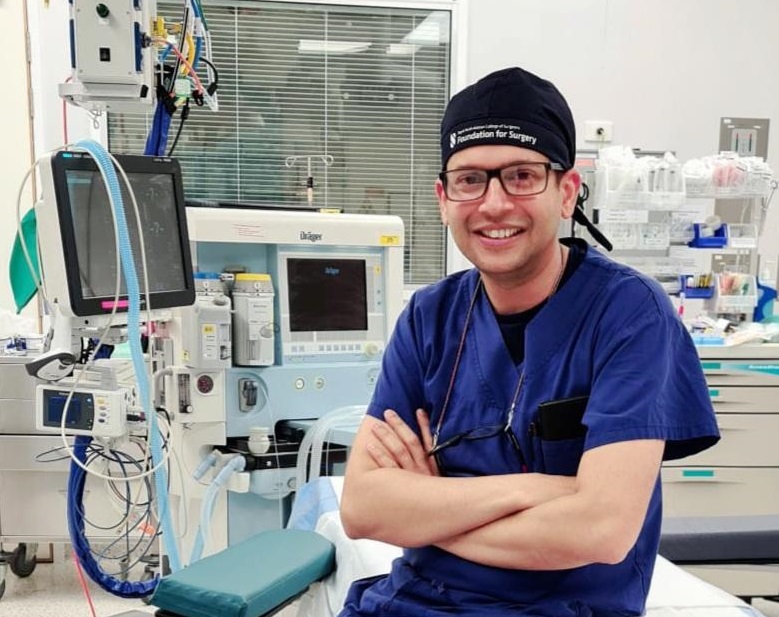
Gender equity in surgery is a passion of Dr Savio Barreto, who has recently published three pieces on inspiring female surgeons around the world. We sat down to have a chat with him about being dual qualified in both India and Australia, and how the operating room is more than just a workplace.
What is your role and what does your work focus on?
I’m a balanced Clinician-Academic and work as a Consultant General Surgeon at Flinders Medical Centre. I also coordinate MD Advanced Studies in the College of Medicine and Public Health at Flinders University. My surgical and research interests are in Hepato-Pancreato-Biliary surgery (HPB), including acute pancreatitis and pancreatic cancer. These are reflected in my two books: Dilemmas in Abdominal Surgery: A Case-Based Approach and Surgical Diseases of the Pancreas and Biliary Tree. I’ve also started to investigate the evolving global problem of young-onset or early-onset cancers.
What journey brought you to this point in your career?
I was born and grew up in the scenic and peaceful state of Goa, on India’s west coast. I did my schooling in the capital city, Panjim, and went on to pursue my undergraduate medical degree, as well as general surgical training at the Goa Medical College and Hospital. I then completed a fellowship in Gastrointestinal (GI) & HPB Surgical Oncology at the Tata Memorial Hospital in Mumbai, India – one of the Premier Global Cancer centers.
I trained in GI, HPB and Liver Transplant Surgery in India and Australia (including Flinders Medical Centre, the Royal Adelaide Hospital, and the Modbury Hospital) and hold surgical qualifications in both countries. I held prior appointments as a Consultant Surgeon at the Tata Memorial Centre, Mumbai, and as a GI and HPB Surgeon in Medanta – The Medicity, Gurgaon, in India.
I moved to Adelaide in 2008 to research Acute Pancreatitis with Professors Jim Toouli and Gino Saccone. I obtained my Doctor of Philosophy degree from Flinders University in 2010 for my work on the neuropeptide galanin, its antagonists, their effects on pancreatic exocrine secretion and their role in acute pancreatitis. Over the years, my research has been a mix of clinical and basic science, always guided by its translational value.
Can you describe a challenge in your life and how you dealt with it?
Choosing to settle down in Australia meant that, as a surgeon, I needed to requalify as a specialist with the Royal Australasian College of Surgeons. This meant two years of ‘supervised training’ and answering the Fellowship exams in General Surgery – 13 years after the first time I did them for my Indian qualification, and this was quite challenging.
I’ve had the support of my wife and kids (for tolerating my absent-mindedness), and the General and Gastrointestinal Surgery team at Flinders Medical Centre, which provided me the opportunity to serve those two years as the Fellow on their team. The Director of General Surgery at Flinders Medical Centre, Associate Professor Lilian Kow also kept reminding me to take it all ‘one step at a time’ and this was invaluable help to me through that trying period.
What is something you are most proud of?
To me, family comes first. Balancing my clinical, academic and research commitments while being a supportive husband to my wife, and a ‘present’ father to my children means a lot to me. I’m proud to be able to strike that balance.
As a board member of the The World Journal of Surgery, the official journal of the International Surgical Society, I’ve been able to initiate a special series acknowledging the extraordinary accomplishments of surgeons who are women, in clinical practice, education, advocacy, and research. This campaign will featured biographies of women who, through courage, dedication and determination, have helped to advance the field of surgery, despite facing adversity and persistent inequities.
What does a normal day look like for you?
Every day at work is different. Beyond specific clinical commitments, of rounds, clinics and elective surgery, I strive to work around adjusting and re-adjusting my academic (MD Advanced Studies) and research commitments. The added complexity of liver transplants certainly makes for an interesting mix!
How do you like to relax or spend your spare time?
I’m most relaxed when I’m with my family – and when I’m operating. In my spare time, I enjoy watching soccer (also playing it), listening to jazz music, reading and playing the guitar.

